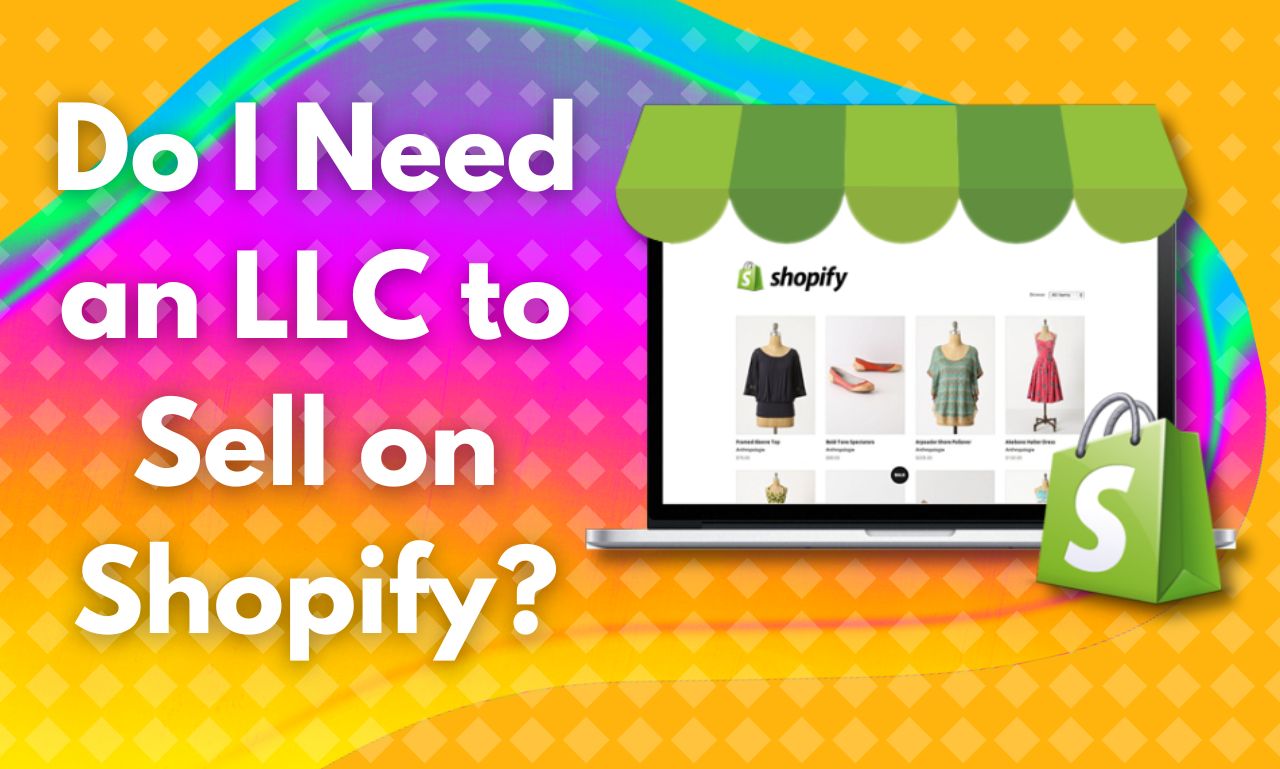Table of Contents
Do I Need an LLC to Sell on Shopify ? Demystifying the Legal Maze for Aspiring E-Commerce Entrepreneurs
Starting an online business with Shopify is an exhilarating journey, brimming with possibilities. But amidst the excitement, legal questions arise, one of the most crucial being: Do I need an LLC to sell on Shopify?
The answer, like most things in life, isn’t a simple yes or no. It depends on a tapestry woven from your business’s nature, location, and aspirations. So, let’s untangle this complex thread, providing you with the knowledge to make an informed decision for your e-commerce venture.
Shopify and LLC: A Legal Tango, Not a Requirement
Shopify, the e-commerce platform of dreams, doesn’t mandate an LLC for opening a merchant account. You can waltz right in and start selling, unencumbered by the paperwork of an LLC formation. This flexibility is fantastic for bootstrapping entrepreneurs and side hustlers who want to test the waters before diving headfirst.
However, just because it’s not mandatory, doesn’t mean it’s inconsequential. An LLC offers a protective shield, separating your personal assets (like your house or car) from the potential liabilities of your business. Imagine an angry customer suing you – with an LLC, your personal belongings remain safe, while the business entity bears the brunt.
Unveiling the Benefits of an LLC for Shopify Sellers:
Beyond shielding your personal assets, an LLC unlocks a treasure trove of advantages:
- Taxation Perks: LLCs offer pass-through taxation, meaning the business’s profits or losses “pass through” to your individual tax return. This eliminates double taxation, a scenario where both the company and you are taxed on the same income.
- Credibility and Trust: An LLC projects professionalism and legitimacy, fostering trust with customers, investors, and suppliers. It screams, “I’m serious about this business!”
- Simplified Business Management: Creating an LLC establishes a distinct legal entity for your business, facilitating easier bookkeeping and accounting.
Navigating the Nuances: When an LLC Might Not Be Your Cup of Tea
While the benefits of an LLC are undeniable, there are situations where it might not be the perfect fit:
- Solopreneur Simplicity: If you’re a one-person show with limited liability risk and low income, the cost and formalities of an LLC might not be worth it initially. Consider a sole proprietorship for the time being.
- Short-Term Experiment: If you’re just testing the e-commerce waters with a small-scale venture, an LLC might be overkill. Gauge your traction before investing in the legal structure.
- State-Specific Regulations: Some states have relaxed rules for home-based businesses, potentially making an LLC unnecessary. Research your local regulations to see if you qualify.
Beyond LLC: Exploring Alternative Business Structures
The business world is a diverse ecosystem, offering a variety of legal structures to house your e-commerce dreams:
- Sole Proprietorship: The simplest and most affordable option, but offering no liability protection.
- Partnership: Ideal for collaborative ventures, but personal liability remains a concern.
- Corporation: Offers robust protection and structure, but comes with increased complexity and formalities.
The Expert Verdict: Choose Your Path Wisely
Ultimately, the decision to form an LLC for your Shopify store rests on your unique business goals and circumstances. Weigh the potential benefits against the costs and complexities before making a choice.
Here’s a handy checklist to help you navigate the decision-making maze:
- Business size and income: Are you a solo act or a growing team? What’s your projected income?
- Liability exposure: Do you handle sensitive data or sell high-risk products?
- Taxation preferences: Do you prefer pass-through taxation or the structure of a corporation?
- Long-term vision: Do you envision scaling your business significantly in the future?
Seek Expert Guidance: Don’t Go Solo on This Journey
The world of legal structures can be daunting. Don’t be afraid to seek guidance from experienced professionals like accountants or lawyers. They can help you navigate the complexities and choose the right legal garment for your business to flourish.
Remember, an LLC is not a magic bullet. It’s a tool, and like any tool, its effectiveness depends on how you wield it. By understanding its benefits, limitations, and alternatives, you can make an informed decision that empowers your Shopify journey and paves the way for success.
Now go forth, aspiring entrepreneur, and conquer the e-commerce world with the knowledge you’ve gained! Do I Need an LLC to Sell on Shopify







2 thoughts on “Do I Need an LLC to Sell on Shopify?”